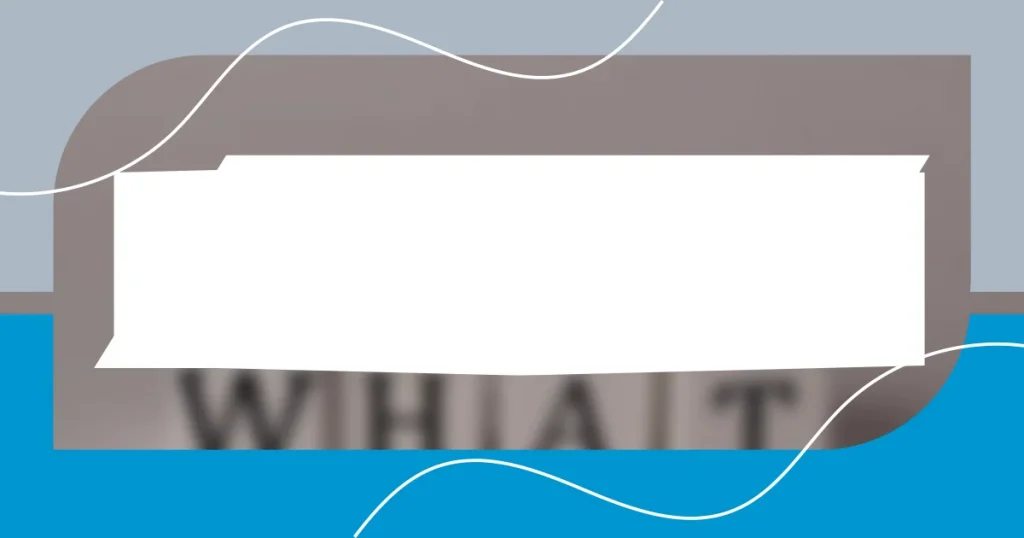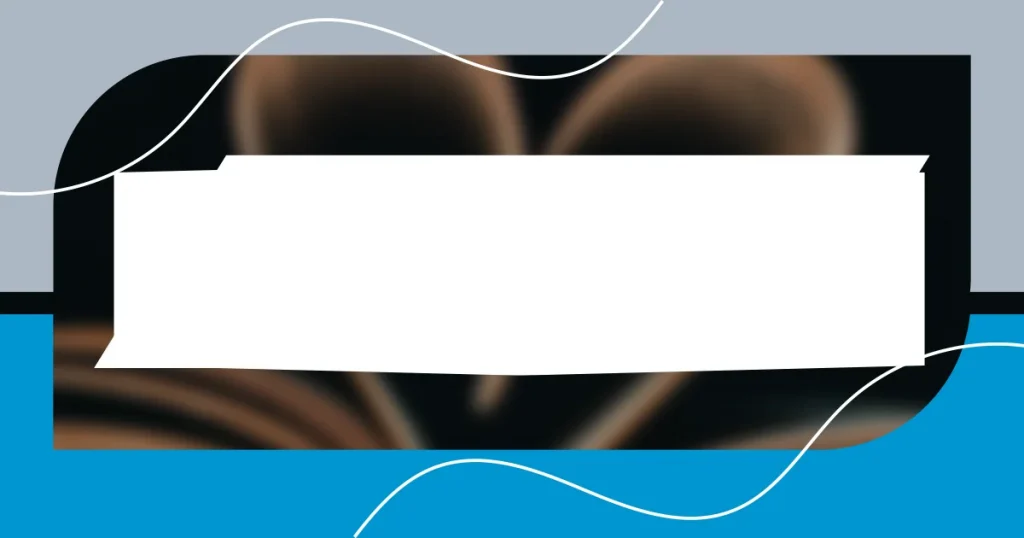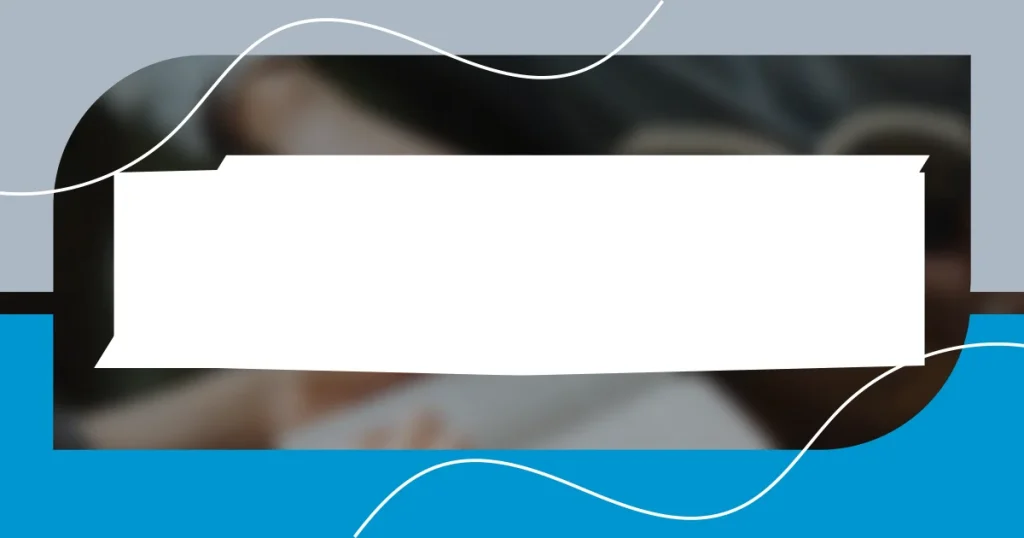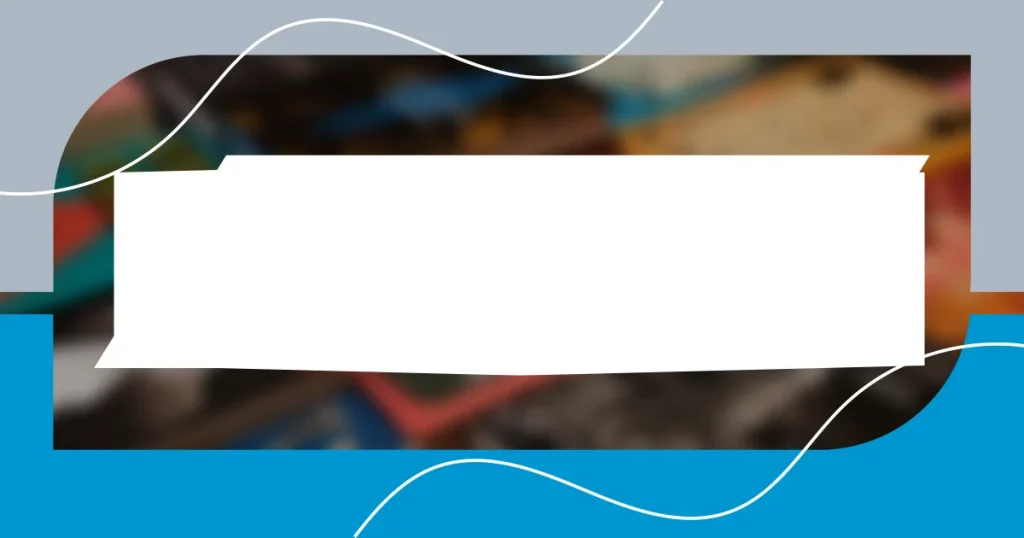Key takeaways:
- Rejection letters, while initially disheartening, can provide valuable feedback and insights for personal growth and resilience.
- Embracing emotions like disappointment and self-doubt is essential for understanding oneself and can lead to stronger determination and clarity in goals.
- Successful individuals often attribute their achievements to perseverance through rejection, highlighting its role as a stepping stone toward future opportunities.

Understanding Rejection Letters
Rejection letters can feel like a punch in the gut. I remember the first time I received one; my heart sank as I stared at the words on the page. It’s easy to take these letters personally, but they often reflect the subjective nature of the selection process rather than a judgment of your worth.
Have you ever considered how rejection letters can serve as valuable feedback? While some may be generic, others provide insights into what could be improved in your application. I once got a letter that highlighted a lack of specific experience I had overlooked. It was a real eye-opener and changed how I approached future applications.
Understanding the context of rejection letters can also shift your perspective on success. Each no is simply a step towards a more appropriate yes. I can’t help but think of how many successful people faced countless rejections before finding their path. It’s a reminder that persistence is key in any journey.

Emotional Impact of Rejection
Rejection can stir up a whirlwind of emotions. I remember feeling a mix of disappointment and self-doubt when I received a particularly harsh rejection; it felt like my abilities were being questioned. This emotional rollercoaster can be disheartening, but it’s essential to acknowledge these feelings as a natural part of the human experience.
Here are some common emotional impacts one might feel after receiving a rejection letter:
- Disappointment: The dream you had might suddenly feel so far away.
- Self-Doubt: Questions about your skills and qualifications can creep in.
- Resilience Building: Over time, facing rejection can actually strengthen your resolve to keep trying.
- Isolation: It’s easy to feel alone in your experience, as if no one else understands what you’re going through.
- Motivation: Sometimes, a rejection can spark a fire to improve and prove your worth.
Embracing these emotions is crucial; they can guide personal growth and understanding. I learned that processing rejection isn’t just about dealing with the negative—it’s also about allowing myself to feel and heal. With each rejection, I found new resilience and insights that propelled me forward.

Lessons in Resilience and Growth
Lessons in Resilience and Growth
Building resilience from rejection is like nurturing a muscle; it requires repeated effort and the willingness to embrace discomfort. I remember a time when a series of job applications ended in a string of rejection letters. Instead of feeling defeated, I chose to view each letter as a stepping stone—one that taught me more about myself and my goals. This shift in mindset was pivotal; it allowed me to grow stronger and more adaptable.
Over the years, I’ve discovered that rejection often exposes areas for growth. Once, after getting passed over for a promotion, I took a step back to analyze my skills. I realized I had room for improvement in project management, so I enrolled in a course. That rejection propelled me on a new path that ultimately led to greater opportunities I never anticipated. This experience taught me that rejection can be a catalyst for personal development, guiding me to new horizons.
It’s fascinating how rejection can lead to newfound clarity. I’ve learned that each rejection is an opportunity to recalibrate my goals. For instance, after a string of rejections from my dream companies, I reevaluated my priorities and took time to focus on my passion projects. That period of reflection equipped me with new insights that enhanced my career trajectory. The heart of resilience lies in this ability to convert setbacks into valuable lessons.
| Emotional Response | Growth Outcome |
|---|---|
| Disappointment | Stronger resolve to keep pursuing goals |
| Self-Doubt | Increased self-awareness of personal strengths and areas for growth |
| Resilience Building | Enhanced problem-solving skills and adaptability |
| Isolation | Newfound connections with others who’ve faced similar challenges |
| Motivation | Clearer vision of personal aspirations and paths to achieve them |

Reframing Failure as Opportunity
Reframing failure is like turning a mirror towards my growth; each rejection reveals new angles I hadn’t considered before. I vividly recall submitting my manuscript to numerous publishers, only to be met with silence or polite refusals. Initially, I felt crushed, but then I asked myself—what can I learn from this? This question shifted my perspective, pushing me to seek feedback and ultimately refining my writing style.
One profound realization struck me during this time: failures often serve as hidden opportunities. After a particularly disappointing pitch to a client, I decided to host a small feedback session. What unfolded was an enlightening exchange where I uncovered gaps in my approach. This wasn’t just about improving my pitch; it was a chance to build stronger relationships and understand the needs of my audience better. It’s incredible how each setback can unlock doors I didn’t even know existed.
In retrospect, I recognize that every rejection I faced wasn’t the end of a journey but a necessary detour. When I was overlooked for a speaking engagement, instead of sulking, I pivoted my focus to honing my public speaking skills through community events. This not only enhanced my abilities but also opened up unexpected networking opportunities. Isn’t it interesting how a simple shift in viewpoint can transform experiences from discouraging to enlightening?

Strategies for Moving Forward
One effective strategy for moving forward after receiving rejection letters is to actively seek feedback. I vividly remember a time when my proposal for a collaborative project was turned down. Instead of sulking, I reached out to the decision-makers and asked for insights on what could have been improved. Their candid responses not only highlighted areas to work on, but they also ignited a sense of purpose within me. Isn’t it amazing how constructive criticism can transform a setback into a launching pad for future success?
Another approach that I’ve found invaluable is setting small, achievable goals right after facing rejection. Once, after not getting selected for a prestigious workshop, I told myself I would apply to at least three smaller events in the following month. By breaking down my larger aspirations into manageable steps, not only did my motivation get reignited, but I also gained new experiences that enriched my skill set. It’s curious—how can our ambitions feel less daunting when we shift our focus to smaller milestones?
Networking also plays a crucial role in moving forward. After being rejected from several positions, I took the initiative to connect with professionals in my field through social media. This proactive step led me to a mentorship opportunity that shaped my career in unexpected ways. It’s fascinating to consider how the people we meet during disappointing times can become our strongest allies in success. Have you ever thought about reaching out to someone after a setback? You never know where that conversation might lead!

Applying Feedback for Improvement
Rejection letters often come with a silver lining: feedback that can be invaluable for improvement. After one particularly tough rejection for a grant, I had the courage to request detailed feedback from the committee. Their insights were honest and, frankly, a bit humbling. However, those pointers illuminated aspects of my proposal I had previously overlooked, prompting me to refine my approach. It felt empowering to turn their constructive criticism into actionable changes.
In another instance, I was rejected from a leadership program that I had been excited about. Instead of retreating, I reached out to other participants, who were kind enough to share their thoughts on their successful applications. Their experiences gave me a fresh perspective, showing me where I might have missed the mark and what strengths I could better highlight in my narrative. This exchange reminded me that feedback often comes not only from the decision-makers but also from peers who’ve walked the same path. Who knows? Sometimes, the people who care the most about our growth are just a conversation away.
I’ve come to embrace the reality that applying feedback is an ongoing journey. After adjusting my approach based on feedback, I made it a habit to seek out other critiques as I progressed. This could be as simple as sharing my work with colleagues for their thoughts or participating in workshops for real-time input. Each piece of feedback was like a puzzle piece, contributing towards a clearer picture of my goals and strengths. Isn’t it fascinating how continuously learning from rejection can actually become a catalyst for personal and professional growth?

Success Stories After Rejection
Think of the numerous stories of successful figures who faced rejection. For instance, J.K. Rowling received countless rejections before “Harry Potter” found its first publisher. Each letter felt like a personal blow, yet she remained undeterred. I often wonder how many aspiring writers are tossed aside because one agent didn’t see their potential, and it’s powerful to see how perseverance can rewrite that narrative.
Then there’s the tale of Oprah Winfrey, who faced both rejection and hardship early in her career. She was fired from her first television job, but instead of giving up, she reflected on her experience and learned from it. I found it inspiring to realize that such setbacks can serve as a forge for resilience. Isn’t it incredible to think that the most cherished stories often come from those who didn’t let rejection define them?
Another example lies with Steven Spielberg, who was rejected by film schools multiple times but turned that disappointment into motivation. Ultimately, his vision flourished into legendary creations that shaped cinema. It makes me reflect—what if each rejection is just life’s way of steering us in a better direction? The narratives we choose to create from our setbacks often hold the keys to our future successes.
















